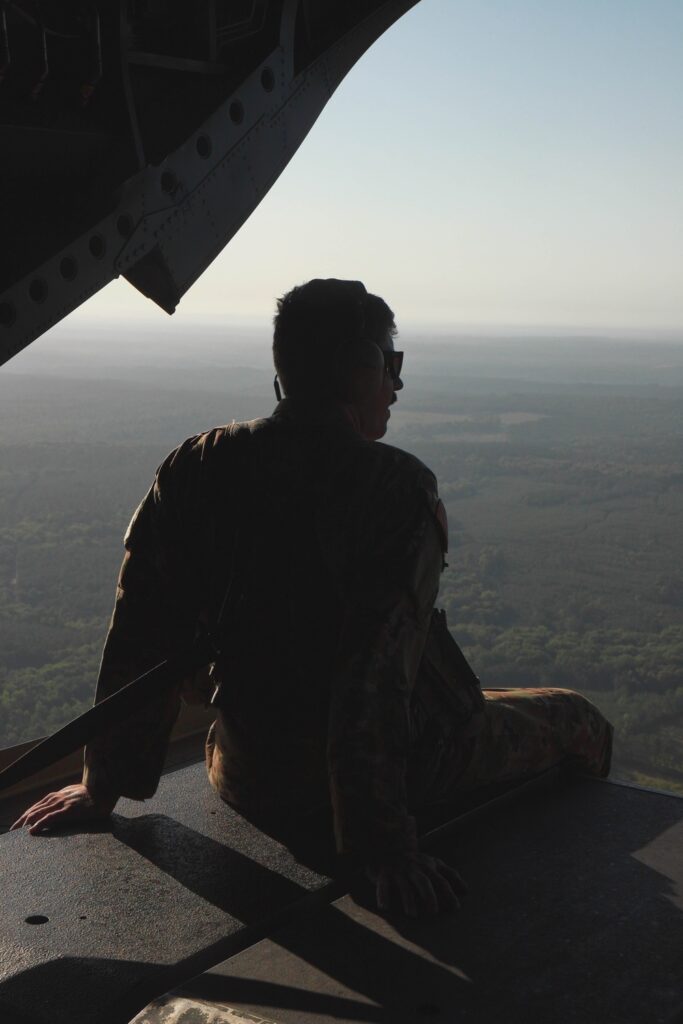FORT STEWART, Ga. — Through partnerships with institutions like Georgia Tech and support for individual educational efforts, the Army is ensuring service members have the knowledge and skills to meet future challenges and maintain a technological advantage on the battlefield.
Recognizing the importance of advanced learning and innovation in developing a modern, capable force, the U.S. Army has significantly expanded educational opportunities for its Soldiers. From partnerships with leading academic institutions to internal innovation centers, the Army is investing in education and research to prepare its personnel for future challenges.
One example of this effort is the Army’s collaboration with Georgia Tech and its Georgia Tech Research Institute (GTRI).
“We’ve been working with the Marne Innovation Center for the past three years,” said Andy Chang, a GTRI researcher who has served as the main liaison between GTRI, Georgia Tech and the 3rd Infantry Division.
This partnership has created many opportunities for military-academic collaboration. The Army-Georgia Tech relationship goes beyond just sharing information.
“We’ve found a variety of opportunities to work together,” Chang said, “whether it’s the 3rd Infantry Division bringing problems to Georgia Tech, participating in the Capstone program, or doing some GTRI-sponsored projects.”
This hands-on approach allows Soldiers to get direct involvement in cutting-edge research and development.
The Army is leveraging these partnerships to expose leadership to advanced technologies and manufacturing processes. Additionally, the 3rd Combat Aviation Brigade (3rd CAB), 3rd Infantry Division, is sending a battalion to Georgia Tech for a leadership professional development tour. The visit is structured around three lines of engagement (LOEs):
LOE 1 focused on a visit to the Georgia Tech Research Laboratory, where participants learned about cutting-edge applications of Army aviation and gained insight into how the Department of Defense funds and conducts research.
LOE 2 will include visits to Georgia Tech’s Department of Mechanical Engineering (ME), Department of Aerospace Engineering (AE) and Georgia Tech Manufacturing Institute (GTMI). The goal of this effort is to build connections between the 3rd CAB and Georgia Tech problem solvers and bring maker space and manufacturing lessons back to the Innovation Center Annex at Hunter Army Airfield in Georgia.
LOE 3 centered on the Military Graduate Research Program (MGRP) panel and was intended to educate junior officers about advanced civilian education options and increase their interest in graduate school.
“We’re visiting and touring Georgia Tech’s Innovation Center,” said 1st Lt. Zachary Young, a platoon leader who took the tour, “to gain a better understanding of how Army procurement and innovation labs can help us provide better ideas and solutions to interesting and complex problems we may encounter on the battlefield.”
The impact of these events goes beyond the immediate acquisition of knowledge.
“This event was important in educating myself and the other young officers about what’s out there — both the skills and the opportunities,” said Capt. Nicholas Wilde, 2nd Battalion, 3rd General Support Aviation Battalion. “Whether each of us stays in the Army or retires, there’s no doubt this event will shape our future paths.”
The Army’s commitment to education goes beyond partnering with outside institutions. It also supports individual Soldiers in pursuing advanced degrees that benefit both the individual and the organization. Capt. William Cooper Ryder, an active-duty infantry officer and second-year master’s student in aerospace engineering at Georgia Tech, is a good example of this approach.
“The Army couldn’t have been more supportive,” Ryder said, “They allowed me to pursue the degree of my choice, which supported both me and the Army’s mission, and it was a great experience.”
This investment in human capital allows the Army to develop a cadre of highly educated officers who can bring advanced knowledge and skills back to their units.
The benefits of this educational support extend beyond the individual soldier.
“Once I complete this program, I will be reporting to West Point to be an instructor in physics and orbital mechanics,” Ryder said, “so I hope to use my aeronautics and astronautics degree, as well as the hands-on research I’ve done with industry during graduate school, to enhance the educational experience of future cadets in the classroom.”
This synergy allows knowledge gained through advanced education to spread throughout the organization. Expanding education for Army soldiers is not limited to traditional academic pursuits, but also includes exposure to innovation centers and advanced manufacturing technologies.
“This will give us a better understanding of the capabilities of the innovation centers that will continue to pop up around the facility,” Young said, noting the importance of understanding those capabilities.
By investing in education and fostering partnerships with academic and research institutions, the Army prepares Soldiers for the complex challenges of modern warfare. From cutting-edge technology development to advanced degree programs, these educational opportunities are shaping the future of the military. As Ryder says, these experiences are “a testament to how well-positioned Georgia Tech, the Aerospace Systems Design Institute, and the culture they’ve built to continually elevate the quality of their work.”
The importance of these educational efforts extends to the highest levels of Army strategy.
“Building these relationships is critical to achieving the division and Army priority of ‘Continuous Transformation’ – connecting warfighters with problem solvers to address the complexities of the future of warfighting,” Wild said.
The Army’s commitment to education and innovation produces a force that is knowledgeable, adaptive, capable and ready to meet the demands of an ever-changing global security environment. Through partnerships with institutions such as Georgia Tech and support of individual educational efforts, the Army is ensuring its personnel have the knowledge and skills necessary to meet future challenges and maintain a technological advantage on the battlefield.
Date taken: June 24, 2024 Posted: June 24, 2024 17:03 Story ID: 474699 Location: Fort Stewart, Georgia, USA Web views: 6 Downloads: 0 Public domain
This piece, “3rd Combat Aviation Brigade Visits Georgia Tech” (by SPC Rebeca Soria and identified by DVIDS), is subject to the restrictions set forth at https://www.dvidshub.net/about/copyright.

